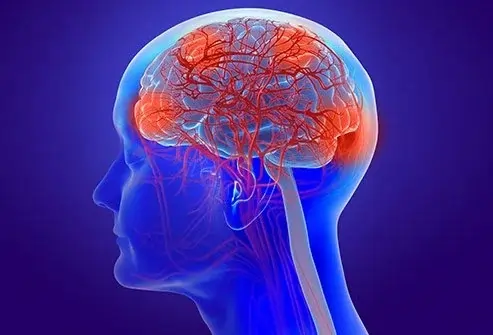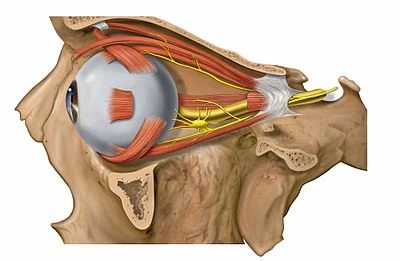Metabolic Encephalopathy
Table of Contents
What is Metabolic Encephalopathy?
Metabolic Encephalopathy is a diffuse brain dysfunction caused by systemic metabolic or toxic disturbances. It often results from conditions such as liver failure, kidney failure, hypoxia, sepsis, or severe electrolyte imbalances.
Symptoms can range from confusion and lethargy to seizures and coma, depending on the severity of the underlying condition. The condition is typically reversible if the underlying cause is identified and treated promptly.
Diagnosis involves clinical evaluation, blood tests, imaging, and sometimes lumbar puncture to rule out other causes.
- Encephalopathy is an assembly of disorders with various causes instead of a singular condition. It is a serious medical condition that can inflict permanent or temporary damage to the brain if it remains untreated.
- It’s easy to confuse encephalitis with encephalopathy. Even though the terms sound alike, they denote distinct conditions. In encephalitis, there is swelling or enlargement of the brain area. Conversely, encephalopathy describes a mental state that may arise from multiple medical issues. Nonetheless, encephalitis can lead to encephalopathy.
- Metabolic encephalopathy is a disorder that influences the operation of the brain. Depending on the extent of the injury to a brain region, it could be either temporary or permanent. This condition is primarily caused by other serious health complications. These complications alter electrolytes and blood chemicals in the bodily area, resulting in harm to brain cells. It is a serious illness that can lead to structural brain damage if not appropriately addressed.
Types of Metabolic Encephalopathy
- Metabolic encephalopathy is categorized into two types based on the severity of the disorder: toxic and acute.
- Acute metabolic encephalopathy results from deficiencies in vitamin material, oxygen, or glucose. It is generally reversible and can be managed with medication and suitable treatment.
- Toxins, infections of the brain region, or organ failure can all contribute to toxic metabolic encephalopathy. This condition is relatively significant for health. It necessitates immediate medical attention and treatment. In some instances, patients may not completely recuperate from the ailment.
- While the metabolic encephalopathy condition manifests differently in each individual in unpredictable ways, here are some of the more typical signs and symptoms associated with these conditions.
Symptoms of Metabolic Encephalopathy
Symptoms may differ based on the type of encephalopathy.
- Delirium – disoriented thinking and trouble focusing. This is a critical health-related issue and necessitates prompt action.
- Lethargy – resulting from inadequate nutrition and elevated levels of toxins in the body.
- Muscle weakness.
- Amnesia or dementia.
- Challenges with motor tasks like walking, eating, writing, etc., are often referred to as ataxia.
- Illusions.
- Hallucinations.
- Reduced consciousness.
- Mood disorders.
- Respiratory issues.
- Psychological problems such as depression and anxiety.
- Vision issues.
- Seizures.
You may also observe some signs of metabolic encephalopathy in areas of your body apart from your brain. These signs can consist of:
- Involuntary muscle movements.
- Uncontrolled eye movement.
- Difficulty with swallowing.
- Slurred speech.
Causes of Metabolic Encephalopathy
- The main causes of metabolic encephalopathy are existing medical conditions such as diabetes, liver disease or chronic disease dysfunction, heart disease, and kidney failure. These health issues lead to toxic substances building up in the body, impacting brain cells.
- One reason for metabolic encephalopathy could be the deficiency of something essential for healthy brain functioning.
- Purchase vitamins and supplements
- This doesn’t necessarily indicate that you are lacking adequate nutrients. Instead, it may be the case that the individual’s body is not processing the nutrients effectively, preventing the brain from receiving what it requires.
- It can also occur indirectly, meaning one of the person’s organs isn’t functioning correctly, thus failing to support the brain.
Some causes of ME in this category include:
- Low glucose
- Low sodium
- Low thiamine
- Low oxygen
- Low blood flow
- Conversely, metabolic encephalopathy can result from an excess of certain substances, as often seen in the kidneys, or toxins processed through the liver. An ailment affecting one of your organs may lead to chemical alterations that subsequently influence brain function. Examples include:
- High glucose
- High sodium
- High carbon dioxide
- Excess fluid in the brain
- Impaired kidney function
- Impaired liver function
- A closely related condition known as toxic metabolic encephalopathy (TME) may also arise from drugs, alcohol, or illegal substances that disrupt a patient’s metabolism.
Risk Factor Of Metabolic Encephalopathy
- Exposure to toxic substances can harm the brain, leading to impaired brain area function.
- Illicit drugs influence brain function
- Organ failure
- Dehydration and malnutrition greatly impact brain dysfunction
- Excessive alcohol intake can damage brain area cells and result in metabolic encephalopathy
- Thiamine deficiency
- the nervous system, resulting in brain damage
- Severe and prolonged fever. Depending on the extent of damage to a brain region, it may be temporary or permanent. Other serious health issues primarily trigger this condition. These conditions affect electrolytes and blood chemicals in the body, damaging brain cells. It is a serious illness that can lead to structural brain damage if not adequately treated.
Diagnosis of Metabolic Encephalopathy
- Typically, specialists start by conducting a physical examination to assess the signs and symptoms of metabolic encephalopathy in a patient. They then recommend blood tests, urinalysis, CT and MRI scans, electroencephalography, etc., based on the patient’s specific health issues.
- Doctors may suspect the presence of metabolic encephalopathy based on some more visible symptoms. However, they usually carry out tests to confirm the diagnosis.
- If your physician believes you might have ME, you can anticipate blood tests.
- An arterial blood gas test can quickly inform doctors of the levels of oxygen and carbon dioxide in a patient’s blood and their ability to reach the brain. It can also give insights into glucose and important electrolytes such as sodium and potassium.
- The physician may also request a thorough metabolic panel to evaluate kidney and liver functionality, identify pH imbalances that suggest the presence of specific toxins, or check electrolyte concentrations. A deficit or surplus of various compounds can indicate various causes of metabolic encephalopathy.
You could also need to have other testing, such as:
- electroencephalography (EEG)
- magnetic resonance imaging (MRI)
- computed tomography (CT)
- somatosensory evoked potential (SEP)
- lumbar puncture (spinal cord).
How can we treat Metabolic Encephalopathy?
Management of metabolic encephalopathy necessitates treating the underlying condition based on the assessment of neurological symptoms and signs. Early identification of an underlying factor can be crucial:
- Delirium disorder (confusion, disorientation, and inability to think or recall clearly) should be managed as an urgent situation.
- The observation of respiratory and circulatory functions is primarily conducted through neurological, laboratory, and neuroimaging assessments.
- The individual should typically be situated in a calm, pressure-free setting and motivated to participate in cognitive tasks.
- Pain relief drugs may be administered to alleviate discomfort.
- Antipsychotic drugs like haloperidol can be prescribed in lower doses; however, this treatment may present certain limitations.
- Medications like quetiapine or olanzapine (not approved by the FDA) are applied.
- Benzodiazepines may be employed for managing alcohol and cocaine withdrawal.
- Research indicates that dexmedetomidine, midazolam, or lorazepam can decrease the frequency and instances of delirium.
- Patients are advised to follow a low-protein diet to reduce blood ammonia concentrations since ammonia is a byproduct of protein metabolism.
- Liver transplantation might be considered for individuals with ongoing liver cirrhosis.
Conclusion
In conclusion, metabolic encephalopathy is a potentially reversible condition resulting from systemic metabolic or toxic disturbances. Early recognition and prompt treatment of the underlying cause are crucial to prevent permanent neurological damage and improve patient outcomes.
FAQ
How can you prevent metabolic encephalopathy?
There is no investigative mechanism to prevent all encephalopathies. Taking care of your overall health by eating right, exercising, and protecting yourself from injuries (such as wearing a helmet) can reduce your risk. A healthcare provider can help you manage any medical conditions that cause encephalopathy.
What organs does metabolic encephalopathy affect?
Metabolic encephalopathy occurs when metabolic-related problems cause the brain area to malfunction. Causes range from low blood sugar to excess fluid in the patient’s part of the brain. Symptoms may include confusion or coma. If you or someone you care about has been diagnosed with encephalopathy, it means they have a brain disorder.
What is a risk agent for metabolic encephalopathy disorder?
Some causes include infections, dehydration, malnutrition, alcohol poisoning, liver/kidney disease, metabolic disorders, or lack of oxygen to the brain.
How do you test for metabolic encephalopathy?
Diagnostic process: Blood tests are usually done to identify which body systems are having problems. They can help indicate a possible infection or detect drugs or toxins in the blood. Urine tests are also often done to evaluate for infection, and cerebrospinal fluid may be taken if necessary.
What are the causes of metabolic encephalopathy?
This happens when another health condition, such as diabetes, liver disease, kidney failure, or heart failure, makes it difficult for the brain to work. For example, if blood sugar is too high in diabetes, it can lead to confusion and even coma.
What is the life expectancy of someone with toxic metabolic encephalopathy?
The treatment and prognosis of metabolic encephalopathy are different and depend on the etiology and the type and severity of the clinical picture. Mortality in patients with septic encephalopathy ranges from 16 to 65%, but the one-year survival in patients with encephalopathy and cirrhosis is less than 50%.
What are the symptoms of metabolic encephalopathy?
Symptoms may include:
Confusion.
Problems with thinking and remembering.
Is irritable and depressed.
Drowsiness.
I can’t sleep.
Fainting (passing out) sometimes.What are the 4 stages of encephalopathy?
Stage 1: Mild symptoms such as insomnia and reduced concentration. Stage 2: Moderate symptoms such as memory loss symptom and slurred speech symptoms. Stage 3: Severe symptoms, including personality changes, behavior changes, confusion, and extreme lethargy. Stage 4: Loss of consciousness level and coma.
What is the difference between an encephalopathy condition and a metabolic encephalopathy condition?
Acute encephalopathy can be identified as toxic, metabolic, or toxic metabolic. Toxic encephalopathy describes an acute change in mental state caused by medications, illegal drugs, or toxic chemicals. Metabolic encephalopathy is caused by a lot of metabolic disorders.
Reference
- Mbbs, K. K. (2022, July 8). Metabolic Encephalopathy: Symptoms, Causes, Treatment & Recovery. MedicineNet. https://www.medicinenet.com/what_is_metabolic_encephalopathy/article.htm
- Metabolic Encephalopathy: Types, Symptoms, Causes, Diagnosis and Treatment. (2022, November 28). Metropolis India Lab. https://www.metropolisindia.com/blog/preventive-healthcare/metabolic-encephalopathy
- Malmo, K. (2023, October 24). What Is Encephalopathy? WebMD. https://www.webmd.com/brain/what-is-encephalopathy
- Rossiaky, D. (2023, March 8). What is Metabolic Encephalopathy? Healthline. https://www.healthline.com/health/metabolic-encephalopathy#causes







